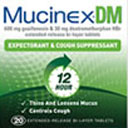

Here in the United States or in other developed countries with adequate sanitary conditions, diarrhea is often viewed as a minor discomfort. The manifestation of diarrhea could be a symptom of serious illness and should not always be viewed as something minor that requires over -the -counter, self-care intervention. Diarrhea is often classified as either acute or chronic.
Treatment of acute diarrhea is within the realm of self-care in some cases.
Chronic diarrhea on other hand should always be referred to a physician.
Acute or chronic diarrhea may be caused by such etiologies as diet, medication or infections. Chronic diarrhea can also be due to several medical conditions such as Crohn’s disease, ulcerative colitis, diabetes, irritable bowel syndrome, endocrine disorders, malabsorption, irritable bowel syndrome and celiac disease.
Consultation with a qualified health care professional over self –treatment of diarrhea is very important for patients considering over the counter options. According to FDA 2003 ruling on antidiarrheals there are two ingredients proven to be safe and effective for diarrhea in patients who have not seen a physician. The two ingredients are Bismuth subsalicylate (brand names: Pepto-Bismol, Kaopectate) and loperamide (brand name: Imodium A-D).
The choice of which antidiarrheal to use between Imodium and Pepto-Bismol becomes less daunting by focusing on the age of patients, contraindications, precautions and drug interaction if co- administered with other medications. Before using Imodium A-D or Pepto-Bismol, patient must consider the exclusionary criteria for self-treatment options such as when there is a bloody or black stool, mucus in stool, fever and if symptom persists for longer than two days, counting from the first loose stool. Patients with diarrhea should drink lots of water or clear fluids to help prevent dehydration resulting from severe fluid and electrolyte loss which often leads to health complications. Electrolyte products such as Pedialyte, Infalyte do not treat diarrhea. They only help to prevent dehydration. No over the counter medication is proven safe for diarrhea if patient is pregnant or breast- feeding.
Keywords: Acute Diarrhea – Chronic Diarrhea









